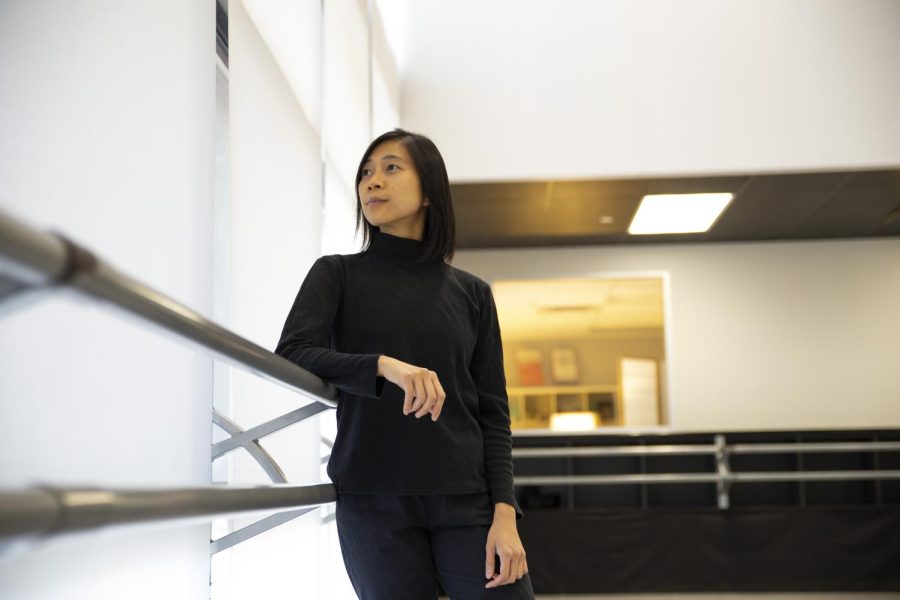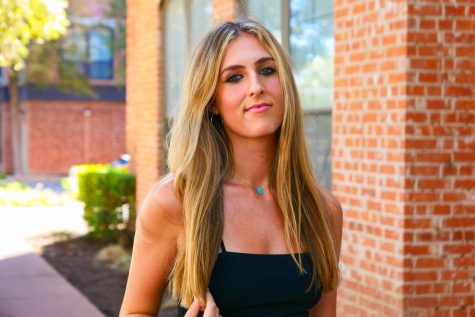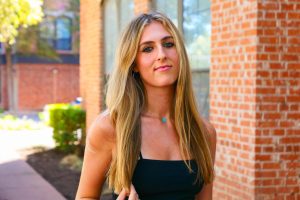UT alum choreographs, presents Filipino ballet ‘Maria and the Mouse Deer’
October 28, 2022
Growing up surrounded by lush forests, Alexa Capareda went to school on Mt. Makiling, an inactive volcano in her hometown of Los Baños in the Philippines. Capareda said she often heard legends about its namesake, Maria Makiling — a “diwata,” or fairy, that healed nature and wildlife — who served as the inspiration for her first long-form ballet show “Maria and the Mouse Deer.”
“You’re living in the forest, walking through all the trees everyday to go to school. You live in dorms among the trees. (The mountain) is such a special place for me,” Capareda said.
As the first installment of Ballet Austin II’s “Fables of the World” series that aims to expose audiences to diverse cultures, “Maria and the Mouse Deer” incorporates Maria Makiling as a character while also emphasizing the importance of taking care of the earth. The company showed the ballet eight times at the AustinVentures StudioTheater during October, coinciding with Filipino American History Month.
Capareda said watching Filipino adaptations of Western ballets by Ballet Philippines, another dance company, further influenced her project.
“(What) I was seeing helped me feel like (ballet) was still for everyone,” Capareda said. “Ballet is not for one culture to own, even though it originates so heavily (from) Eurocentric culture.”
Capareda studied Southeast Asian folktales and their shared values during her senior year studying English at UT. While conceptualizing her ballet’s characters and costumes, Capareda said she wanted to include a mischievous “pilandok,” or mouse deer, to symbolize the trickster character trope commonly found in stories around the world.
“The mouse deer is frequently tricking an animal larger than itself and is very resourceful,” Capareda said.
“Maria and the Mouse Deer” combines classical and contemporary dance styles. Capareda said she chose music from fusion bands like Pinikpikan — which uses instruments ranging from bamboo rhythm sticks to gongs — as well as songs that would accompany Filipino folk dances.
“(Pinikpikan) uses traditional instruments that are very clear, but it (also) has a more modern feel,” Capareda said. “That music made it easy to make those transitions in between styles. The ballet has its own world and vocabulary of movement.”
Lisa del Rosario, another Filipino American instructor at Ballet Austin, said she developed a close friendship with Capareda, who joined the company’s faculty in 2015. Del Rosario said productions like “Maria and the Mouse Deer” will encourage younger audiences to learn more about Filipino culture and become more socially aware and inclusive.
“It’s so thrilling to see this representation done so creatively,” UT dance alumna Del Rosario said. “That impacts children so young, and it needs to start early — influences from other countries (and) cultures that are also American. … (Alexa’s) a citizen. I’ve always been an American citizen. We’re also part of American culture.”
Alexandra Owens, who danced as the tarsier, a Philippine endangered species, in the ballet, said that Capareda took time to teach the cast Filipino history, folk dances and legends by showing them different forms of media. Owens said she finds seeing the audience’s reactions to their performances the most fulfilling part of the project.
“We can show kids in ballets (that) anyone can be like Maria,” said advertising sophomore Owens. “Getting to see all of the little kids in the audience, … that always means the world to me, (having) someone they can look up to and a story they can also relate to.”
Capareda plans to show additional performances of “Maria and the Mouse Deer” in April 2023 for Filipino teachers at Manor ISD. Moving forward, Capareda said she will continue proudly carrying her Filipino American identity and connecting with her community through dance.
“It’s just such a fun culture to have grown up with, and I’m so thankful for everything that it has made me — (having) that appreciation for the arts. We just sing and dance all the time,” Capareda said. “The ‘kababayan’ (or) togetherness is so much part of my life and made me who I am.”









